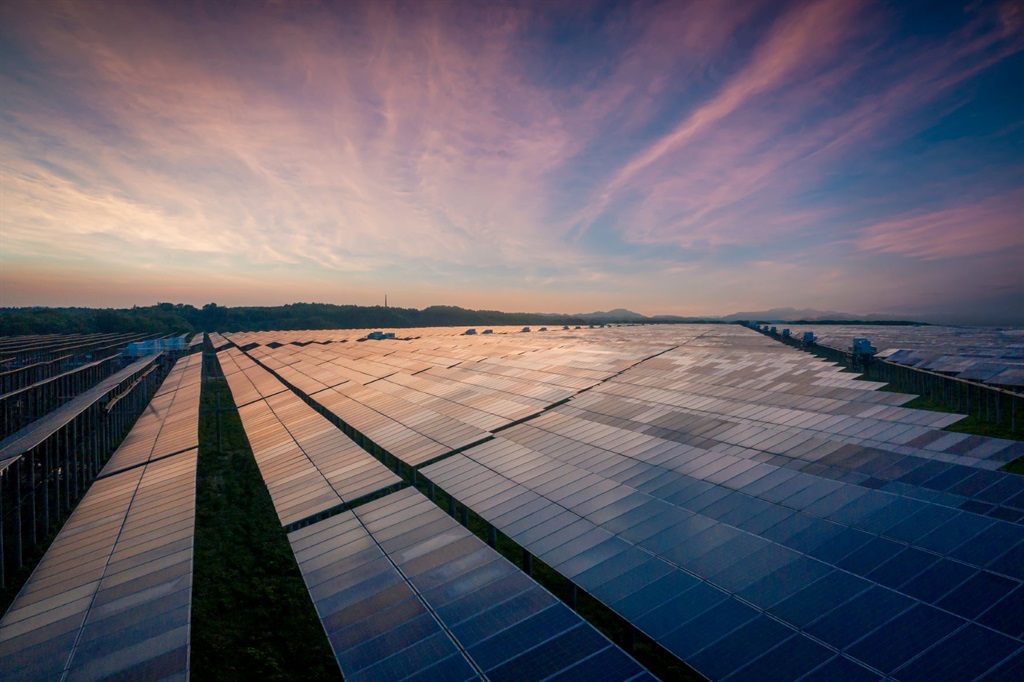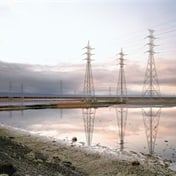
- Solar power is now helping to keep the lights on for 17 hours a day in a Lebanese village.
- While many Lebanese rely on costly generators for electricity, some have turned to solar, which has helped cut fuel costs.
- Installing solar power is expensive, and many people have sold cars, jewellery, or land to finance it.
- Get the biggest business stories emailed to you every weekday, or go to the News24 Business front page.
Thanks to solar energy, residents of the northern Lebanese village of Toula are finally able to enjoy ice cream again - a treat in a sun-baked country plagued by power cuts.
Lebanon's economy collapsed in 2019 after decades of corruption and mismanagement, leaving the state unable to provide electricity for more than an hour or two per day.
Last winter, the mountain village of Toula barely had three hours of daily generator-driven electricity.
Solar power now helps keep the lights on for 17 hours, an engineer working on the alternative energy project said.
"For two years the kids have been asking for ice cream, now it's finally time," said Toula mini-market owner Jacqueline Younes, beaming.
"We are waiting for our first order of ice cream to arrive."
While many Lebanese rely on costly generators for electricity, a growing number of homes, companies and state institutions are turning to solar - not out of environmental concern, but because it's their only option.
Solar panels dot rooftops and parking lots, powering entire villages - and even Beirut's only functioning traffic lights, thanks to a local NGO.
"Solar energy is no longer an alternative, it's a necessity. If we hadn't installed panels, the village wouldn't have any electricity," said engineer Elie Gereige, standing beside a sea of panels on a hilltop overlooking Toula.
Gereige is part of a team of volunteers who raised more than $100 000 from Toula expatriates to build a solar farm with 185 panels installed on church land.
They worked with the municipality to feed the village generator with solar energy, cutting down on fuel costs while powering the entire community.
$1.4 million for power
An hour's drive south of Toula, a branch of Spinneys supermarket is also installing panels in the parking lot and rooftop to slash its generator bills.
"I think we will save around half of our energy costs in Jbeil due to solar panels," said Hassan Ezzeldine, chairman of Gray Mackenzie Retail Lebanon, which owns Spinneys.
The company spends between $800 000 and $1.4 million a month on electricity for its chain of supermarkets, he said, to power generators that run on diesel round-the-clock.
"The cost of generators today is dramatic. It's a disaster."
His company has considered turning to solar energy for years, but after the crisis "we thought... it's something we needed to do, and we needed to do it immediately," he said.
Private individuals are also turning to solar to cut down on generator bills, setting up panels and batteries on balconies and rooftops.
READ | Load shedding cannot be ruled out in France, grid operator warns
Homemaker Zeina Sayegh installed solar power for around $6 000 for her Beirut apartment last summer, when the state lifted most petrol subsidies.
She was the only one in the building with panels.
This year, nine neighbours have joined her, covering the roof with metal bars connecting dozens of panels.
She has switched completely to solar, limiting power consumption at night. But she has non-stop electricity in the summertime - a rare luxury.
"I'm more comfortable this way. I feel I'm in control of the electricity and not the other way around," she said.
Expensive switch
In a country where poverty is rampant and bank depositors with savings are locked out of their accounts, installing solar power is expensive.
Many Lebanese have resorted to selling a car, jewellery or a plot of land to finance the switch.
Before Lebanon's economy collapsed, only a few companies offered solar power installation services.
But high demand has opened the door "for anyone to start selling solar systems", said Antoine Skayem of solar power company Free Energy.
Demand from cash-strapped municipalities has soared, he said.
But they are vulnerable to political meddling and patronage.




 Publications
Publications
 Partners
Partners












